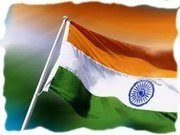Head in the sands!
In December of 2012, a 23 year old physiotherapy student was gang raped on a bus in the Indian capital city of New Delhi. It was a case of extraordinary brutality committed right in the heart of India's capital. A case of a small town girl trying to prosper in the new India by pursuing higher education - something India as an independent country has been encouraging and striving towards for the last 7 decades. The British film maker Leslee Udwin made a documentary at the time comprised of interviews with the accused. In the documentary, the bus driver Mukesh Singh goes on to blame the victim for the rape - proclaiming that any girl who ventures out alone after dark is an "indecent girl" and should be rightly punished by being raped. It is clear from the interview that Mr. Singh has absolutely no remorse for his actions. While this fact in of itself is startling, it is not why the Government has proceeded with such haste to ban the film in India. The truth is that Mr. Mukesh's views are fairly common among India's male population.
The documentary - as do many truths - comes at an extremely inconvenient time for the BJP Government. After winning the general elections upon a promise of economic growth, the new government can't wait to roll out its business friendly policies and promote India as the go-to destination for foreign capital. The documentary once again focuses world attention upon India's reprehensibly poor law enforcement and throws its outdated views on gender equality into stark relief. The pro-hindutva government of Prime Minister Narendra Modi has not yet been able to appreciate that the India they desire - one of booming industrial growth and new jobs can not become so without ensuring the safety of its female work force. Rather than confront these unsettling truths head on, the government's reaction has been to ban the documentary in India. It also tried to enforce a gag order on the BBC, but thankfully the documentary has gone public anyway. To most readers of the civilized world, this reaction is understandably incomprehensible but there are very specific reasons why India's government is reacting this way. The truth is that Prime Minister Narendra Modi and home minister Rajnath Singh are firmly in favor of women's safety. But they are equally unsure whether the Indian woman belongs in its theaters, night clubs, restaurants and public transport after dark in the first place. The prime minister wants to return India to its historical golden age - without subscribing to the western values. It is expressly why his voice has been conspicuously missing in the current debate.
By all measures there has never been a more important time when India needs to see this documentary. A recent study conducted by the IMRB ( Indian Market Research Bureau ) spreading across 11 states has found that 44% of its college students believe that women must accept some form of violence, 65% of college students believe that boys and girls of different religions should not meet in public places, a large majority of students are also quite unaware that they are citizens of India. It is high time that India as a country undertake a serious introspection of its society. The country is experiencing a clash of its past with the future, of tradition with modernity and while the upheaval is essentially uncomfortable, documentaries such as "India's Daughter" and the social dialogue around them are critical to this process.
No problem can be solved without an honest admission of whats wrong. And the truth is that India has for far too long averted difficult questions. Its schools and colleges do not imbibe its young with a sense of citizenship nor do they encourage critical thinking. India continues to shy away from sexual education while confronting a population explosion. Its police officers, politicians and bureaucrats continue to view women as second class citizens and its institutions of governance are in desperate need of serious reform. Almost all symbols of India's government wear an ancient sanskrit motto "Satyameva Jayate" - "The truth alone triumphs". It is time the government heeds to the writing on the wall.





.jpg)









